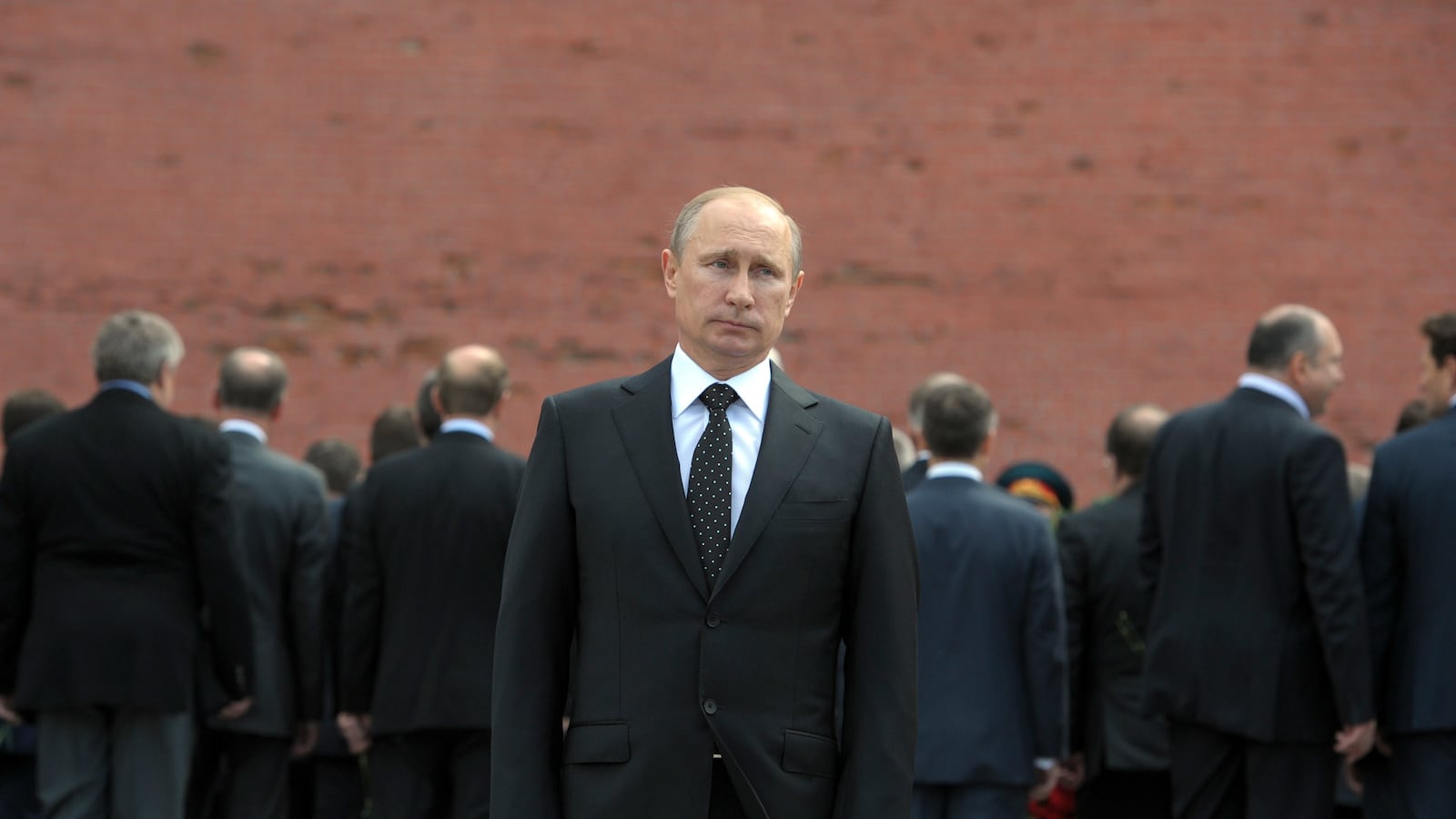Is the Ukraine crisis over? Not yet, maybe not even close. But Russian President Vladmir Putin is sending plenty of signals he’d like to be done with it—and avoid any further sanctions against his country and his cronies.
On Tuesday, a day after Putin and President Barack Obama discussed the conflict over the phone, Putin made a curious move in the Federation Council, the Russian senate. Only a few weeks ago, as Putin massed troops on the frontier with Ukraine, threatening imminent invasion, he asked the council to give him the authority to use the Russian military outside Russia’s borders. The world held its breath. War seemed imminent. But on Tuesday Putin asked the council to repeal the authority it had given him and on Wednesday it did just that.
Why would Putin want his hands tied (however loosely)?
One likely reason: He made the request a few days before European leaders are to discuss new sanctions against Russia, this time covering the banking sector. Another possibility: He can get the reversal reversed any time he wants, and may be trying, once again, to wrong-foot the West by talking conciliation while stepping up covert action to support the rebels in eastern Ukraine.
The Obama administration, highly skeptical, issued a statement about the conversation with Putin, saying the U.S. president “emphasized that words must be accompanied by actions and that the United States remains prepared to impose additional sanctions should circumstances warrant.”
For his part, Ukraine President Petro Poroshenko welcomed Putin’s decision. Poroshenko has said repeatedly that “Ukraine has to live together with Russia” and peace was necessary for both countries.
But Putin’s own allies and supporters criticized the move. Sergei Markov, an adviser to the Kremlin on Ukraine policy, said that separatists in Donetsk and Luhansk provinces would see Putin’s decision as “a catastrophe.” Russians in Russia, who’ve given massive approval to Putin’s quasi-imperial policies in Crimea and Ukraine, may react negatively as well. “The war against Russians in Ukraine goes on, fascists rule Ukraine,” Markov told the Moscow-based Slon news publication, “and with that background, Putin says: ‘Take away my right to bring my forces there!’”
Analyzing Putin's strategy in Ukraine, Markov said that the Kremlin intended to continue supporting pro-Russian militants there through through “non-military” means. “We'll have a propagandistic campaign in eastern Ukraine to explain that our forces have been moving to Ukraine's border for a long time for a sudden strike,” Markov said. Indeed, some of the Russian forces that were pulling back a few weeks ago now seem to be advancing once again toward the frontier.
A prominent Russian opposition leader in Moscow, Eduard Limonov, predicted that Putin’s decision could cause the presidential approval rating go down. An independent observer and editor-in-chief of The New Times magazine, Yevgenia Albats, told radio Echo of Moscow that Putin appeared to be in “a very uncomfortable” situation, dependent on his circle of siloviki, or influential military and secret service veterans. “The information he makes public very often has discrepancies, and it is clear that all the information is delivered to him by men wearing epaulets.”
Albats said that by promising not to invade, Putin gave a signal to warlords in eastern Ukraine to calm the violence, as the war was becoming too expensive for Russia. “It is going to be interesting to see now whether the siloviki are going to obey Putin,” Albats said.
Meanwhile, the violence continued. Separatists shot down a Ukrainian helicopter on Tuesday, killing nine people. Both separatists and official Kiev blamed one another for breaking earlier agreements.
Speaking at a press conference in Vienna on Tuesday, Putin said it was useless to ask separatists to put down their weapons and recalled a fire in Odessa that killed pro-Russian supporters, a touchstone for Russians who say the eastern militants need to remain armed to fend off violence from Ukrainian nationalists. He described the rebels’ mindset as, “Today we put down the weapons and tomorrow they burn us alive.”
The bottom-line implication of such remarks: Putin will not let that happen again; and the crisis will go on.






